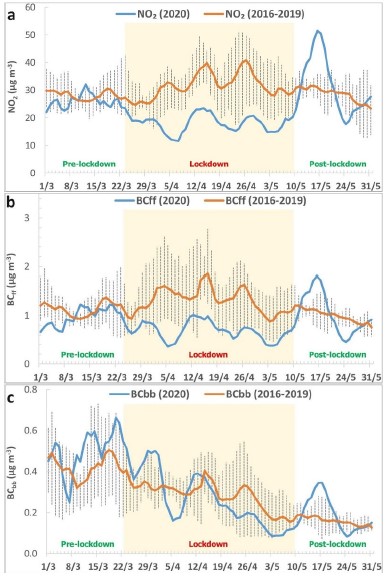In our new study we assess the effects of a 7–week lockdown in Athens, coupling in situ observations with estimations from a meteorology–atmospheric chemistry model. The in–situ results indicate mean concentration reductions of 30–35% for traffic–related pollutants in Athens (NO2, CO, BC from fossil fuel combustion), compared to the pre–lockdown period. A large reduction (53%) was observed also for the urban CO2 enhancement, highlighting the role of vehicular traffic in mitigating urban carbon footprints. The decrease in measured pollutants, under a realistic reduced–emissions scenario for the lockdown period, anchored at a 46% decline of road transport activity. However, levels rebounded immediately following the lift of the general lockdown but the message should remain alive. We need to change our urban life style and current economic models to mitigate pollution and thus halt climate change and save human lives.
You can read the full published article here.


